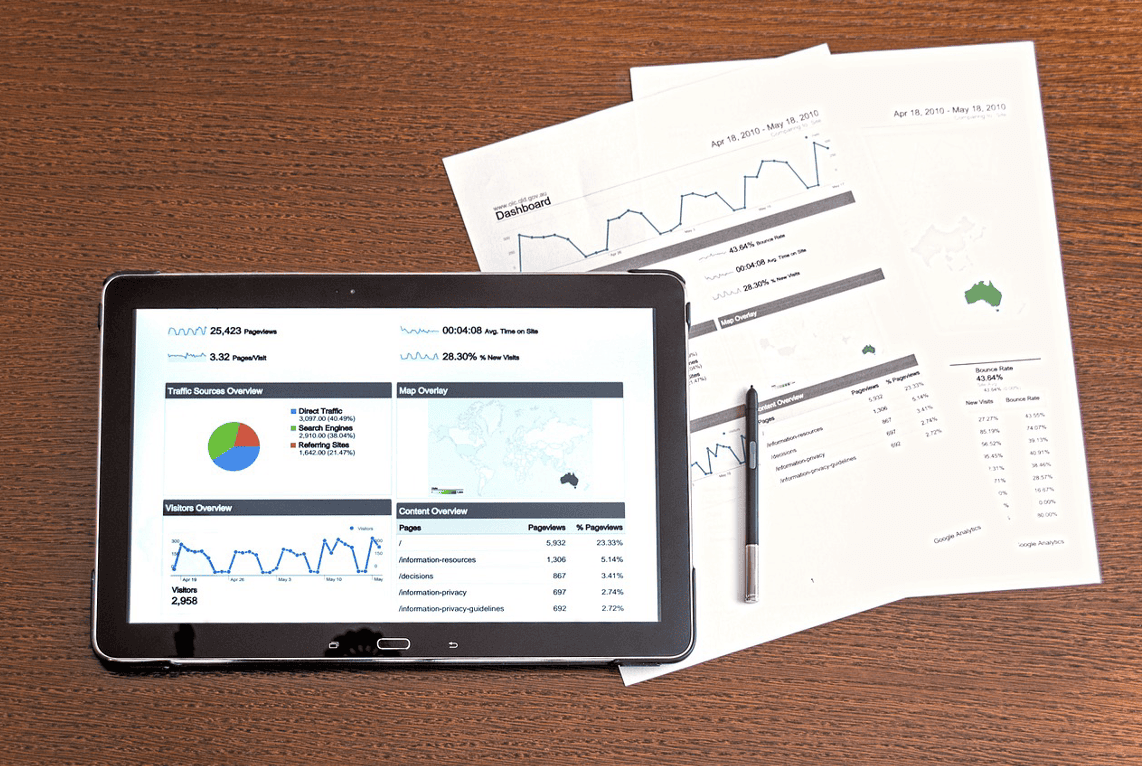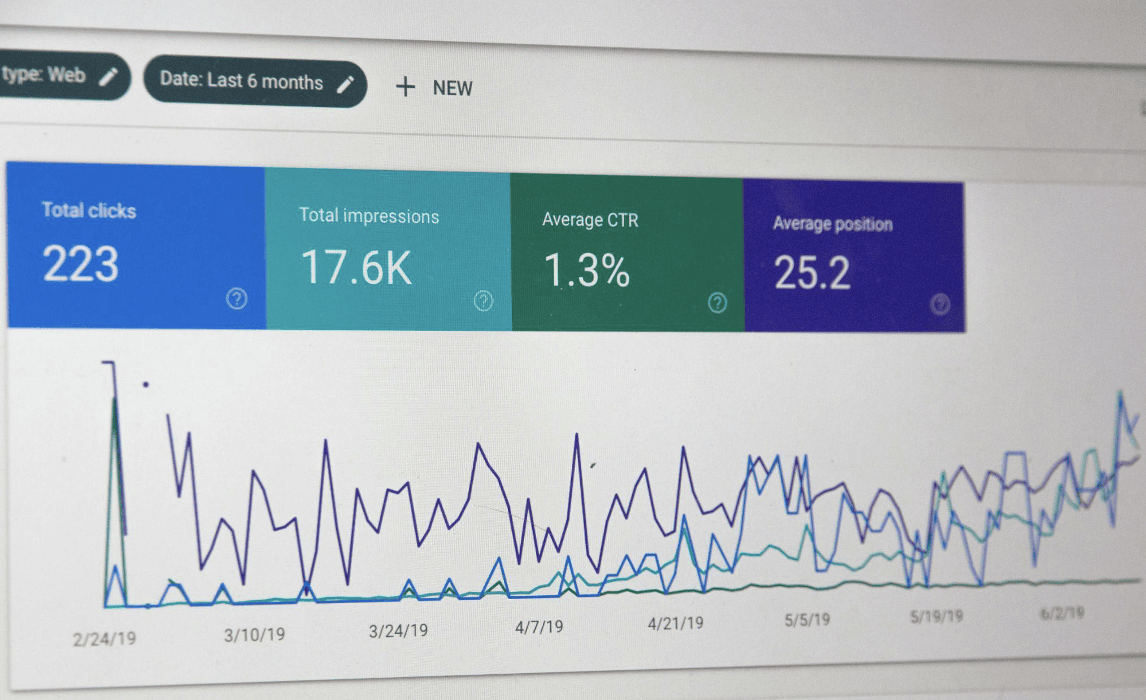In today’s digital landscape, making data-driven and informed decisions is no longer optional but essential. Successful startups leverage data analytics to understand user behavior, refine engagement, and optimize strategies to maximize revenue. Without this, startups can make blind and ill-informed decisions, wasting efforts and resources. A mobile app loses over 75% of its daily active users shortly after installation.
Integrating mobile app analytics for startups can help them avoid costly decisions by gaining valuable insights into user behavior and interaction with the application. These insights help optimize the user journey, enhance user experience, and identify potential roadblocks. Moreover, analytics is crucial in monetization strategies, such as analyzing purchase patterns, subscription trends, and ad performance to refine revenue models.

Key Benefits of Analytics for App KPIs
Analytics empowers businesses and provides a deeper understanding of user behavior within the app. Tracking key performance indicators (KPIs), such as retention rate, daily active users (DAU), conversion rate, average session length, and revenue growth gives you a broader view of making informed, data-driven decisions for sustainable development.
Studies have revealed that, on average, one in four users abandon an app just after one use, which shows the importance of implementing strategies that enhance user engagement and improve user retention. For instance, push notifications or friendly reminders can reveal the best times to re-engage users, while in-app behavior tracking can help you fine-tune the user interfaces.
Furthermore, analytics helps you generate revenue by tracking in-app purchases, understanding your audiences and their spending behaviors, ad engagement, and subscription trends. With these insights, you can tailor your pricing strategies and offer personalized offerings that enhance conversion rates.
Moreover, with an increased user base and proper analysis of session recordings, heatmaps, and feature engagement metrics, you can optimize, update, and prioritize features that provide the most value.
Top Analytics Tools for App Developers
Developers must have the right tech stack to develop a scalable, flexible software product. With user interaction and expectations growing complex, a robust analytics system allows businesses to track crucial KPIs, monitor user behavior, and make informed decisions.
Several data analytics tools are available, each offering unique capabilities depending on the business needs. The following are some of the software developers’ most widely used data analytics tools.
| Analytics tool | Features |
| Firebase Analytics | Real-time user tracking, cohort analysis, predictive analysis, and seamless integration with the Firebase ecosystem. |
| Mixpanel | Event-based tracking, funnel analysis, A/V testing, and retention analytics. |
| Amplitude | Behavioral analytics, feature adoption insights, predictive analytics, and user segmentation. |
| App Annie | Market intelligence, competitor benchmarking, app store performance tracking, and demographic insights. |
Must-Track KPIs for Data-Driven Decisions
Monitoring the performance of critical KPIs to gain insights is essential for startups in making well-informed, data-driven decisions. These KPIs provide real-time visibility into numerous metrics, allowing businesses to identify trends, optimize engagement, and enhance monetization strategies, ensuring long-term success.
Furthermore, they ensure the effectiveness of marketing campaigns, assess user satisfaction, and pinpoint areas requiring improvements. Without this data, companies risk making uninformed decisions, which affects user retention and revenue generation.
Acquisition Metrics
Any startup must understand how users discover and install their apps to improve their marketing efforts and increase growth. With data analytics tools, businesses can track download numbers to measure the number of app installations and active users and identify trends over time. Furthermore, they provide insights into the sources of user acquisitions to determine whether users are coming from organic searches, marketing campaigns, social media promotions, or referral programs.
App Store Optimization (ASO) metrics like impressions, conversion rate, and keyword ranking improve organic visibility and conversion. Monitoring them can help you understand the user journey and redefine strategies for the app listing to attract more users.
Engagement Metrics
Tracking engagement metrics such as the number of active users, session duration, and click-through rate (CTR) allows you to understand the app’s ability to effectively retain and captivate targeted users. Measuring active users weekly, monthly, or quarterly helps determine their loyalty and assess whether their trend is growing or declining. Session duration provides insights into how long users interact with the product, showcasing whether they find the content engaging enough or needing improvement.
Conversion Metrics
Monitoring conversation metrics is vital to evaluate an app’s revenue-generating potential and optimize monetization strategies. Tracking in-app purchases provides insights into user spending behavior, helping businesses understand which products, subscriptions, or premium features drive the most revenue.
Further, to optimize conversion, click-through rate (CTR) plays an important role, as it measures how effectively the users interact with the call-to-action (CTA) buttons that lead to purchases or subscriptions. A low CTR may suggest that users are not finding the content engaging, and vice versa. Therefore, with these insights gained from engagement metrics, you can conduct A/B testing of different user interface components, optimize ad placement, and refine content strategies to increase user engagement.

Analytics as a Catalyst for App Performance
Leveraging data analytics is no longer an option but is necessary for sustainable growth. Tracking essential KPIs such as user acquisition, engagement, and conversion metrics and integrating data-driven strategies can help you gain deep insights into user behavior, engagement tactics, and optimize monetization efforts.
Moreover, utilizing advanced data analytics tools empowers you to monitor user interactions, identify bottlenecks, and improve the overall app performance. Through consistent data analysis and iterative improvements, you can enhance user retention and increase conversation.

